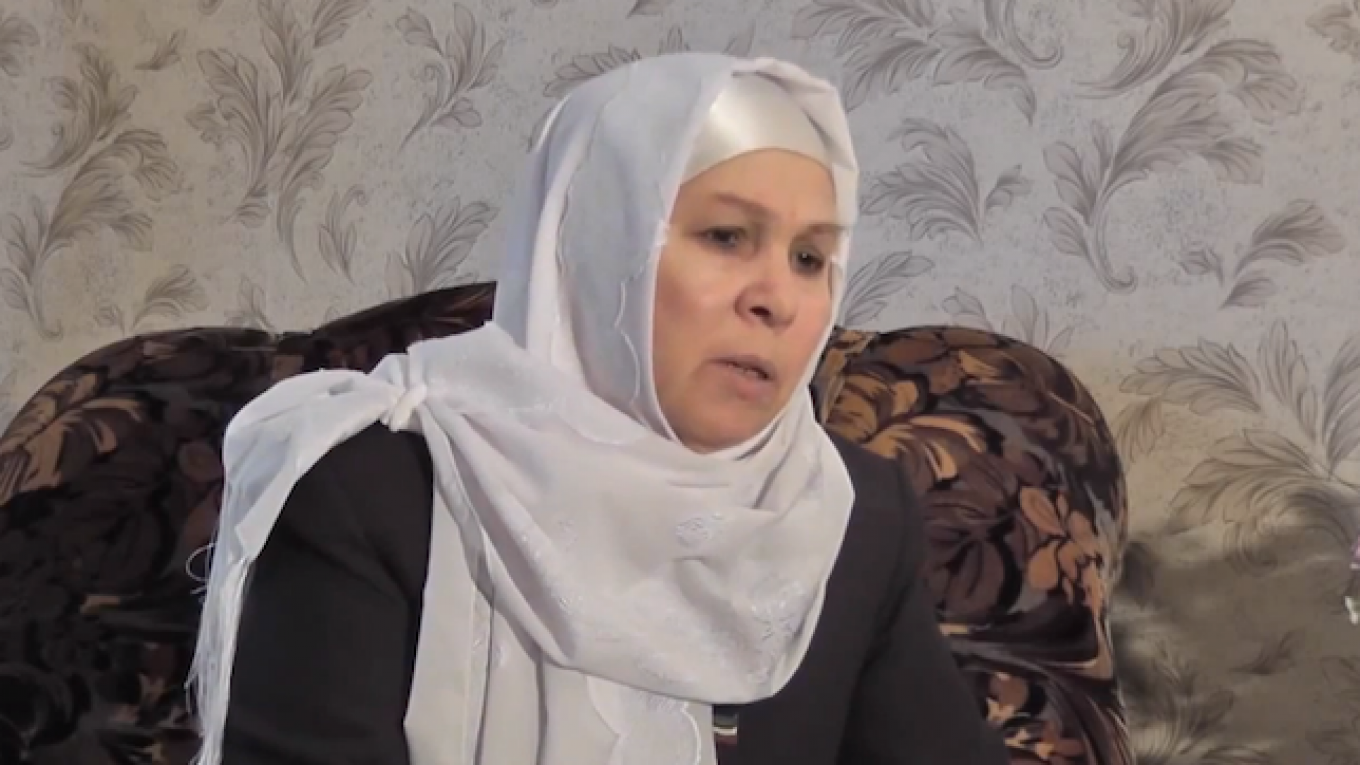A court in Russia's republic of Tatarstan has handed down a one-year suspended sentence to a radical nationalist who had called for fellow Tatars in Crimea to oppose the Russian annexation of the peninsula, claiming violent persecution of Muslims in Russia.
Fauziya Bairamova, 63, nicknamed the "Grandmother of Tatar nationalism" by Russian media for her decades-long radical stance, was also banned from changing her residence without informing the authorities, according to a city court verdict Thursday, which she posted on her Facebook page.
The subject of the hearing was two publications Bairamova posted on social networks in late February — during the turbulent time between the fall of Ukraine's Moscow-backed administration but before Russia's annexation of Crimea — calling for Crimean Tatars to oppose the drive by pro-Moscow inhabitants to join Russia, and claiming widespread persecution of Muslim Tatars in Russia, Russkaya Planeta news portal reported.
"Every day Muslims in Tatarstan are being arrested, searched, persecuted, jailed, beaten, maimed," Bairamova was quoted as saying in one of her posts.
In another, she expressed support for a rally by Crimean Tatars that attempted to block the peninsula's local legislature from voting in favor of seceding to Russia, Russkaya Planeta reported.
Bairamova — a writer, leader of the self-proclaimed pan-Tatar national assembly, Milli Mejlis, and a devout Muslim who always wears a headdress in public — has had a series of radical statements linked to her during recent decades.
In an article published in the early 1990s, she called for the children of mixed marriages to be shot. Bairamova later claimed that the "KGB" had put her name on the publication.
She also attended a rally in Tatarstan two years ago alongside members of the banned Islamic group Hizb ut-Tahrir — a London-based Sunni Muslim organization that seeks to unite all Muslim lands into an Islamic caliphate ruled by Sharia law — and reportedly addressed the rally to call for an Islamic state in Tatarstan.
In a separate ruling Thursday, four members of Hizb ut-Tahrir were sentenced by a Naberezhnye Chelny city court to punishments ranging from suspended terms to 16 months in prison, local news agency Tatar-Inform reported.
The four men were found guilty of inciting ethnic or religious hatred and participating in a banned "extremist" organization, the report said.
Bairamova's one-year suspended sentence was also for inciting ethnic hatred, according to the verdict she quoted on Facebook.
Contact the author at [email protected]
A Message from The Moscow Times:
Dear readers,
We are facing unprecedented challenges. Russia's Prosecutor General's Office has designated The Moscow Times as an "undesirable" organization, criminalizing our work and putting our staff at risk of prosecution. This follows our earlier unjust labeling as a "foreign agent."
These actions are direct attempts to silence independent journalism in Russia. The authorities claim our work "discredits the decisions of the Russian leadership." We see things differently: we strive to provide accurate, unbiased reporting on Russia.
We, the journalists of The Moscow Times, refuse to be silenced. But to continue our work, we need your help.
Your support, no matter how small, makes a world of difference. If you can, please support us monthly starting from just $2. It's quick to set up, and every contribution makes a significant impact.
By supporting The Moscow Times, you're defending open, independent journalism in the face of repression. Thank you for standing with us.
Remind me later.






